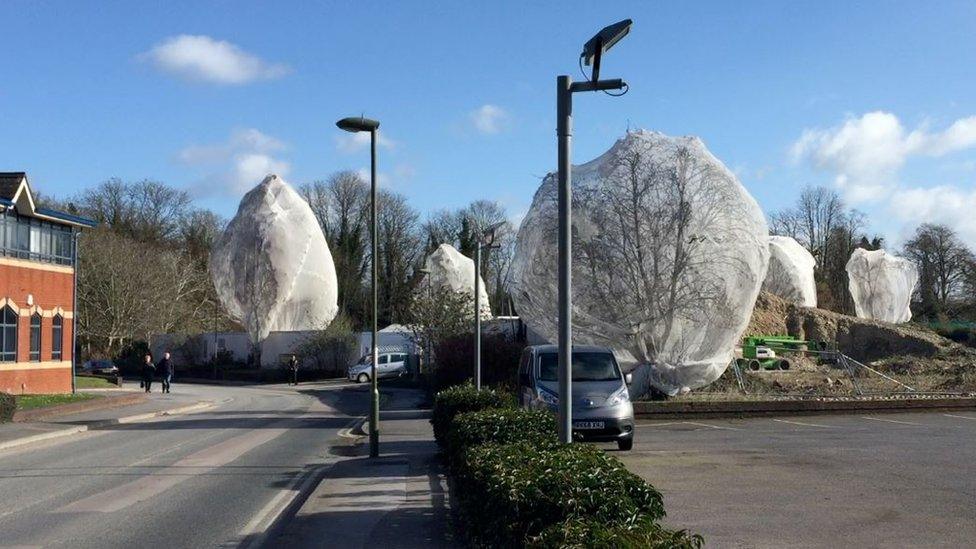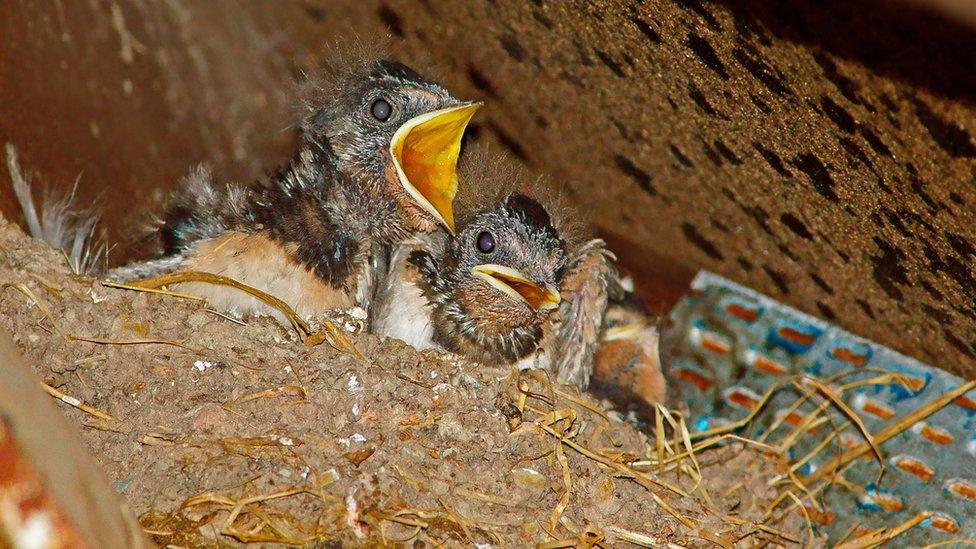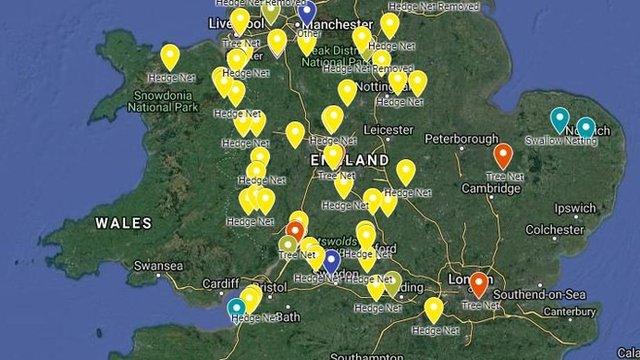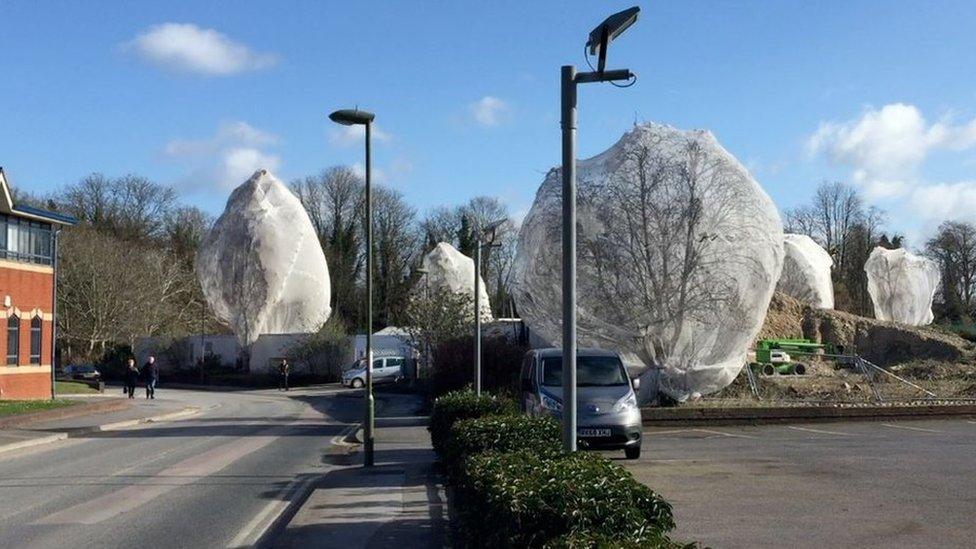Netting to stop birds nesting: Call for new safeguards
- Published

Wildlife experts are calling for stricter controls on nets installed over trees and hedgerows amid growing public concern about their use.
People are reporting sightings on social media, while an e-petition has collected more than 190,000 signatures.
Developers have said the nets, which are designed to stop birds nesting, are "standard practice" on greenery that might be damaged by building work.
But the RSPB says they should only be used in exceptional circumstances.
The wildlife charity has joined forces with the body that represents trained ecologists to call for new safeguards.
"Netting is an overly simplistic approach that has become more prominent recently," says the RSPB and The Chartered Institute of Ecology and Environmental Management in a statement.
"There is an understandable negative reaction from both the public and from professional ecologists to the real and potential harm that it may cause to wildlife."

Swallow chicks in the Cotswolds - many birds are returning in spring to nest
The use of netting can often be avoided with advice from a trained ecologist, they say.
If there is no other option, it should be used only after planning permission has been granted.
And the netting should be used in a way that will not trap wildlife and checked three times a day, they added.
While it is an offence to destroy an active nest, there are currently no laws to prevent the installation of nets.
According to Jeff Knott from the RSPB, the use of netting on hedges and trees seems to have "exploded" this year.
"It seems to be popping up all over the place and that's been a real concern," he said.
"The public interest in this issue has been absolutely huge."
Hedges and trees shrouded with netting are "a visual representation of how we are increasingly painting nature into a smaller, smaller box and how we are forcing it to fit in with our plans," he added.
Campaigns on social media have led to nets being removed.
Last week, residents in Berkshire, including nature writer Nicola Chester, used Twitter to report birds being trapped in a net on hedgerows in Theale.
Allow X content?
This article contains content provided by X. We ask for your permission before anything is loaded, as they may be using cookies and other technologies. You may want to read X’s cookie policy, external and privacy policy, external before accepting. To view this content choose ‘accept and continue’.
West Berkshire Council later said it would remove the netting.
Meanwhile, a petition has been set up to try to make the practice illegal, arguing that developers and other interested parties are circumventing laws protecting birds, whose numbers are in sharp decline.
And a crowdsourced map that allows people to post where they have seen the nets recorded sightings in Scotland, England and Wales, from Cornwall up to Glasgow.

A crowdsourced map circulating on Twitter
The representative body of the homebuilding industry, the Home Builders Federation, has said installing this type of netting was not a new thing and it was not aware of any increase in netting.
It said the industry was committed to protecting birds and providing an overall increase in the number of trees.
Each year about 2,000 reports are made about wild birds trapped in or behind many different types of netting, with bird-deterrent netting a major cause, said the RSPCA.
"Planning policy guidance recommends that any development that would affect wildlife should be done at the correct time of year, so we want to see developers delaying works until after the nesting seasons rather than using nets," it said.
"If nets are used it should be for the shortest time possible, regularly checked and kept in a good state of repair to prevent animals becoming trapped."
Follow Helen on Twitter, external.

Have you seen nets in your area? Tell us about it and send a photo to haveyoursay@bbc.co.uk, external.
You can also contact us in the following ways:
WhatsApp: +44 7555 173285
Tweet: @BBC_HaveYourSay, external
Send pictures/video to yourpics@bbc.co.uk, external
Text an SMS or MMS to 61124 (UK) or +44 7624 800 100 (international)
- Published23 March 2019
